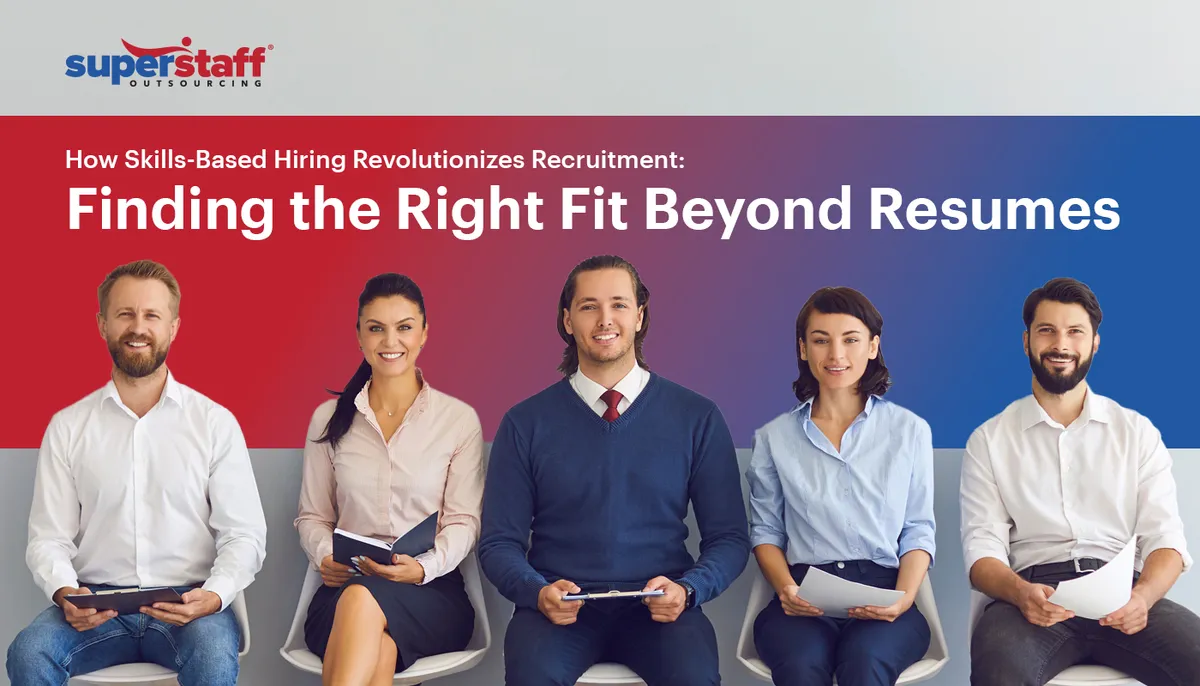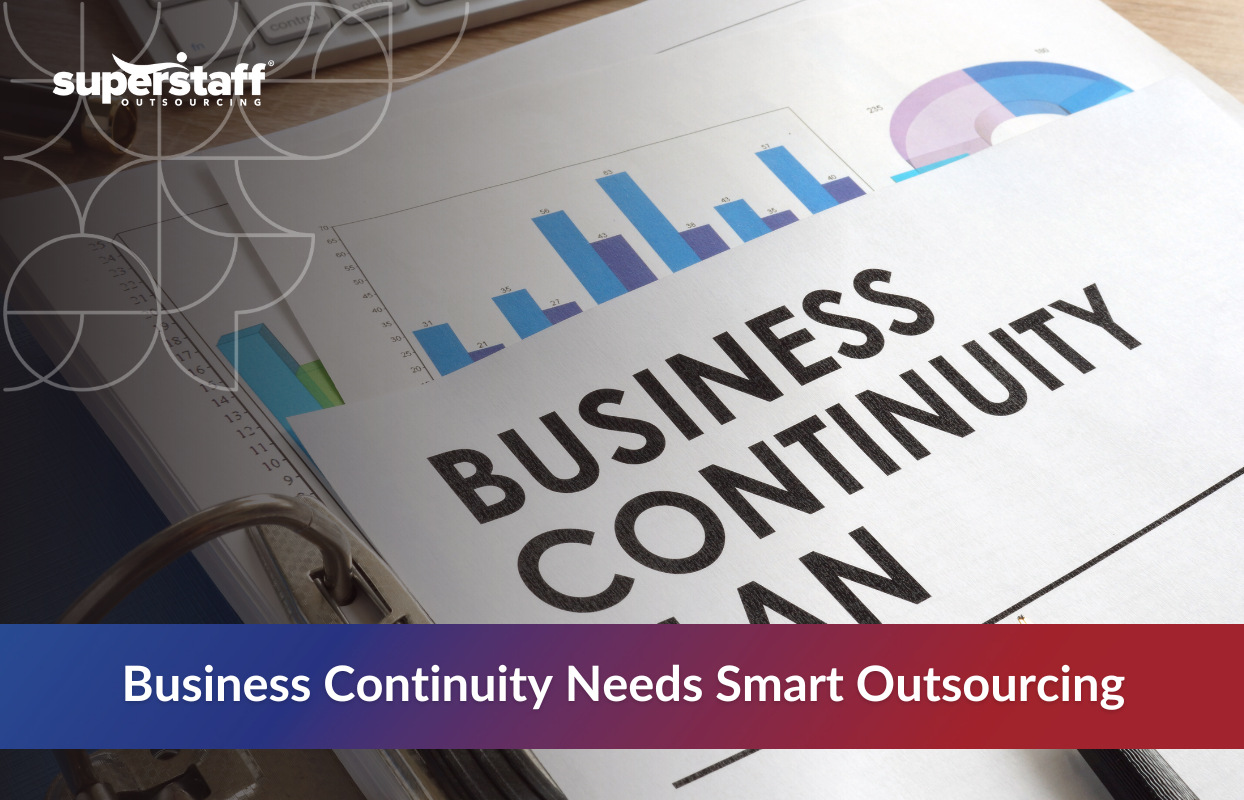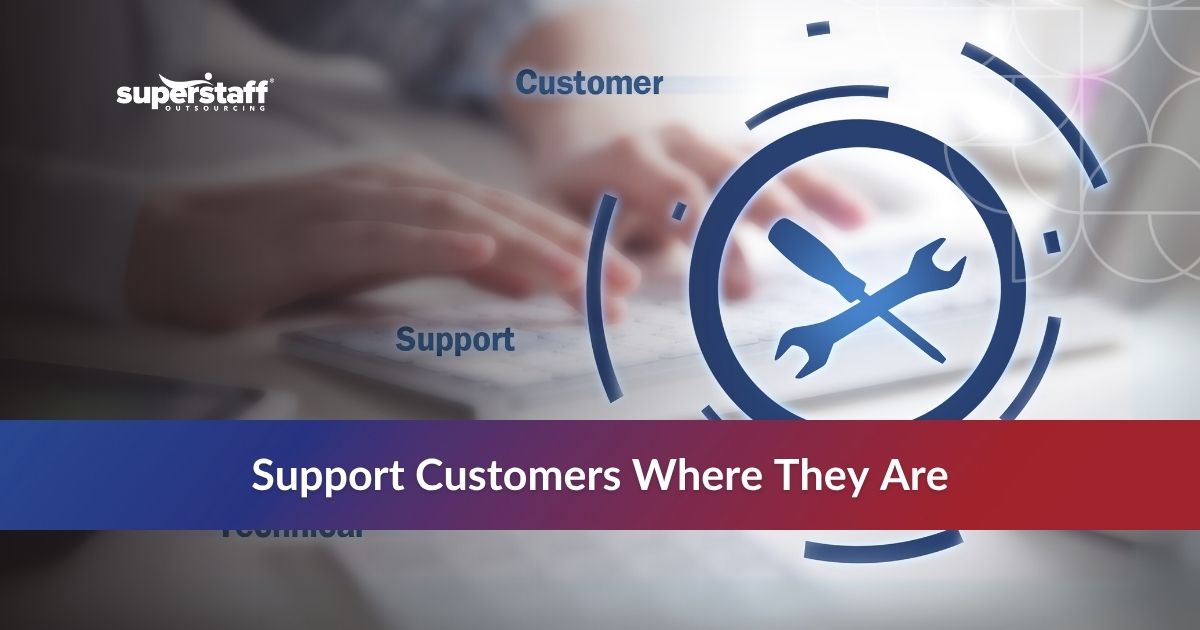
Gone are the days when flashy resumes and padded CVs were a must-have to get ahead in the hiring game. Nowadays, hiring managers are departing from traditional methods and zooming in on a more crucial aspect of talent acquisition: SKILL.
Skills-based hiring is on the rise. Recent research showed that more than 70% of employers and employees report that skills-based hiring is more effective than resume hiring. Additionally, the same study revealed that 73% of companies have incorporated skills-based hiring to some degree, with 27% of companies adopting some form over the past year.
This revolution in recruitment practices isn’t just a trend; it’s a strategic leap that redefines how organizations discover their ideal candidates.
What Is Skills-Based Hiring?
In this progressive hiring strategy, skills reign supreme. Recruiters and hiring managers put a premium on what you can do over credentials like where you graduated from and previously worked.
Resumes take the sidelines while skills-based tests take center stage. What exactly do these skills-based tests entail? It’s any hiring process in which an employer asks applicants to complete a skills-based task, assignment, or work sample that determines whether they’re fit for a role.
For instance, if you’re applying for a writing job, this might require you to submit an article, or if you are in programming, this might take the form of a coding task, or if you’re in the service industry, a trial shift as a server. This encourages job seekers to demonstrate their skills, which employers can use to assess their eligibility (or lack thereof) to make strategic hiring decisions.
This hiring approach focuses on what a person can do and achieve based on their skill set, making it a far more accurate measure of potential success within a role.
4 Skills-Based Hiring Statistics You Need To Know
- 88% of employers have reported that skills-based hiring reduces mis-hires
- 82% of companies have reported a drop in the total cost of mishiring
- 86% of employees have reported that skills-based hiring can help them get hired and land good roles
- 76% of skills-based hires are satisfied with their roles
- A survey by CVwizard reports that 66.89% of people prefer anonymous applying
Unveiling the Competitive Edge: Advantages of Skills-Based Hiring
In the battle between skill-based and degree-based hiring, do skills reign supreme? Let’s dive deep into why increasingly more businesses are reinventing their hiring methods and phasing out traditional credentialing and resume-based hiring to make way for skills. Here’s a rundown of the benefits of skills-based hiring for employers and job seekers.
Enhanced Accuracy in Candidate Assessment
The efficiency of your recruitment process directly impacts your success, with every moment spent sifting through resumes representing a missed opportunity. Each delay in the hiring process allows top-tier talent to elude your grasp and find a home with your competitors. Beyond the loss of potential hires, prolonged recruitment procedures drain your financial resources with the tedious back-and-forth of mishiring.
The answer is simple. Fine-tune your process with skills-based hiring.
This approach offers a significant advantage by more precisely evaluating a candidate’s suitability for a position. Instead of relying solely on traditional criteria, skills-based hiring hones in on the specific abilities required for the job, offering recruiters a clearer insight into an applicant’s capabilities. This shift minimizes the risk of overlooking talented individuals who may not fit conventional molds but possess the exact skills needed for the role.
Taking it a step further, incorporating skills-based tests early in the process is a game-changer. By sending candidates a link to these tests before the interview stage, recruiters can swiftly and objectively assess their skills. The results are then conveniently compiled in a dashboard, streamlining the evaluation process.
The impact of skills-based hiring is not just theoretical. According to the 2022 State of Skills-Based report, 91.4% of surveyed companies reported a reduction in their total time-to-hire when adopting this approach. Even more impressive, almost 40% experienced a time-to-hire decrease of over 25%.
Promoting Diversity and Inclusion
Degree-based hiring and traditional credentialing can be prejudiced. Conventional hiring methods often unintentionally favor candidates with specific educational backgrounds or work experiences, leading to organizational homogeneity.
Fortunately, skills-based hiring breaks these barriers. It allows a more diverse pool of applicants to shine based on their competencies, regardless of degree requirements or employment history. This fosters a more inclusive work environment, enriching teams with various perspectives and ideas. Not only that, it can even give us a competitive advantage. McKinsey revealed that ethnically diverse companies are 36% more likely to outperform their less diverse counterparts.
Skills-based hiring also serves as an equalizer for underprivileged groups. With the staggering 25% increase in the cost of a college education over the past decade, numerous Americans cannot access career paths that demand a four-year degree due to financial constraints.
In promoting workplace diversity, equity, and inclusion, skills-based hiring becomes a key player by providing opportunities for individuals historically excluded from jobs based on educational background. This approach ensures that candidates are evaluated on their ability to perform the required duties, allowing for equal consideration irrespective of their educational history.
Reducing Bias in Recruitment
It is only natural to have preferences. Whether it’s a shared alma mater or hometown, biases can easily creep in when evaluating candidates. However, it’s crucial not to let these biases hinder the objective pursuit of the most qualified candidate.
Take this scenario, for instance: Someone from your HR department includes their referral in the shortlist. Unfortunately, after three rounds of interviews, it becomes evident that the candidate is not qualified for the position.
The result? It is a significant waste of resources on your part. To make matters worse, this unqualified candidate took a spot that a more deserving individual could have filled. These could have been effortlessly sidestepped by incorporating skills-based hiring to screen your candidates.
Skills-based hiring minimizes biases by focusing solely on a candidate’s abilities. This reduces the impact of subjective evaluations based on demographic information, promoting fairness and equality in hiring decisions.
Improved Job Performance and Satisfaction
Skills-based recruiting means aligning candidates’ specific capabilities with the job requirements. This targeted matching process ensures a better fit for the role and sets the stage for enhanced productivity and job fulfillment. Individuals are more likely to excel in their positions when selected based on their skills, creating a positive ripple effect on overall organizational success.
One noteworthy advantage of skills-based recruiting is its impact on employee retention. According to McKinsey, the predictive power of hiring for skills surpasses other conventional metrics. Specifically, hiring based on skills is five times more predictive of job performance than focusing on education and over two times more predictive than considering work experience.
Moreover, employees without college degrees tend to stay in their roles 34% longer than their degreed counterparts. This emphasis on skills is a powerful asset in a landscape where staff turnover rates are escalating.
Navigating the Talent Landscape: Best Practices in Skills-Based Hiring for Success
Traditional hiring methods have led to a more progressive and practical approach: skills-based hiring. This method, which emphasizes evaluating candidates based on their specific skill sets rather than just their credentials, has emerged as a game-changer in the recruitment landscape. To harness its full potential, organizations must embrace best practices that ensure a seamless transition and maximize the benefits of skills-based hiring for employers and employees.
Define Essential Skills for Each Role
Start by plotting out your skill requirements for each role. Discuss your preferred and non-negotiable skills with hiring managers, team leaders, and other stakeholders. This includes technical skills, soft skills, and other competencies you expect from candidates.
Job Descriptions To Emphasize Skills
Instead of the usual qualifications and experience spiel, hone in on the specific skills needed for the gig. Spell out how these skills will drive success in your organization.
Invite your HR manager to a meeting and dive deep into the essential skills a candidate should possess. Talk about skills are a must-have from day one and what can be picked up on the job. Review any unnecessary qualifications like a college degree or strict experience requirements that could scare off some fantastic candidates. Armed with all this insight, craft a job description that attracts and downright captivates top performers.
Develop Skills Assessments
Design skills testing processes that get to the heart of candidates’ skills for the job. Think of practical exercises, simulations, and case studies. Feel free to create scenarios that let candidates roll up their sleeves and showcase their skill sets.
Once you’ve got the tests down, do some investigation. Compare the data for candidates who aced the skills-based assessments with those who came in through other avenues — for instance, referrals and resume-based routes. This can give you the complete picture of how skills-based hiring stacks up against the rest. It’s like testing our hiring methods and seeing which one comes out on top.
Design assessments that effectively evaluate candidates’ skills relevant to the role. These assessments can include practical exercises, simulations, case studies, or scenario-based questions that allow candidates to showcase their abilities in action.
Implement Consistent Evaluation Criteria
Set up some ground rules to ensure you’ve got consistent criteria for sizing up candidates’ skills throughout the hiring process.
Why does it matter? When we’re consistent in our evaluations, it’s all about being fair and objective. No favorites, no bias — just a precise, level playing field. This consistency is critical in comparing apples to apples regarding what candidates bring to the table. This kind of fairness makes our assessments spot-on and our decisions rock-solid.
Utilize Multiple Assessment Methods
Don’t be afraid to spice things up in your candidate evaluations. Instead of just sticking to one method, bring in a whole arsenal of assessments to get the complete picture. These evaluations can take the form of interviews, technical tests, behavioral assessments, and situational judgment tests — a mix that covers all the bases.
Why the variety? Each assessment gives us a different angle on a candidate. Interviews dive into personality and communication, technical tests get into the nitty-gritty skills, behavioral assessments show how they handle situations, and situational judgment tests reveal those decision-making chops.
By throwing this mix into the ring, we’re not just scratching the surface but diving deep into what makes each candidate tick. It helps us gain a 360-degree view of their capabilities.
Train Recruiters and Hiring Managers
Transitioning to skills-based hiring from traditional hiring may come with some birthing pains, so roll out training sessions to ensure recruiters and hiring managers are equipped with the knowledge to facilitate skills-based hiring. Beyond the basics, dive deep into the principles and methodologies that make this approach shine. The goal is to equip your team with the skills to see beyond the standard qualifications and past experiences.
Beyond just simple training, strive to cultivate a culture of continuous learning. Emphasize the importance of upskilling and reskilling, keeping your team sharp and ready to adapt to whatever the job landscape throws our way.
Leverage Technology for Skill Assessment
Another way to get the most out of skills-based hiring is by diving into technology-driven tools that make skill assessments a breeze. For instance, this may include applicant tracking systems, skill assessment software, and AI-powered platforms working harmoniously to supercharge your evaluation process.
These tools are a critical lifeline. Applicant tracking systems keep everything organized, skill assessment software adds precision to our evaluations, and AI-powered platforms are the secret ingredient for efficiency and accuracy.
With the right tech in place, you’re not just assessing skills; you’re doing it with much-needed precision and efficiency. It’s a game-changer that speeds up the process and ensures that our evaluations are top-notch.
Provide Constructive Feedback
Always offer constructive feedback, no matter the hiring decision. Why? Because more than just filling a role, it’s about creating an experience that candidates will remember.
If a candidate puts their best foot forward during the process and they don’t land the gig, they still deserve some insights, right? That’s where our constructive feedback comes into play. We’re not just pointing out what went well; we’re also highlighting areas for improvement. It’s like giving them a roadmap to boost their skills and shine even brighter in the future.
This approach builds a positive candidate experience. Whether they join our team or not, we want candidates to walk away with a great impression of our organization. A little feedback goes a long way in making a lasting impact. Let’s be the kind of recruiters who find the right fit and leave candidates feeling valued and empowered. After all, these candidates and their social circles are still potential customers, so let’s avoid negative word-of-mouth.
Evaluate and Refine the Process
Keep your skills-based hiring process on the cutting edge by embracing a culture of continuous evaluation and refinement.
Here’s the game plan: regularly assess how our skills-based hiring plays out. Dive deep into the hiring outcomes, and don’t forget to gather insights from the people in the know — your stakeholders. Their feedback is gold, helping us understand what’s working well and where we can fine-tune our approach.
If you’re not keeping tabs on the success of our skills-based hiring, we might miss out on some significant optimization opportunities. Are there certain groups that could use more representation?
Are any sneaky inefficiencies making their way into our hiring process? Can we sprinkle some extra magic into the employee and candidate experience? These are the questions we need answers to.
And because we’re all about strategic moves, we’re not just tracking for the sake of it. We’re setting targets linking to areas where skills-based hiring can make the most impact. It’s like having a compass that guides us toward success. So, let’s keep the evaluation wheels turning, make those necessary adjustments, and ensure our skills-based hiring stays sharp and effective.
Leverage Recruitment Process Outsourcing
Let’s discuss a game-changer in skills-based hiring –- Recruitment Process Outsourcing (RPO).
When we team up with a reputable RPO provider like SuperStaff, we’re tapping into a wealth of knowledge in identifying, assessing, and recruiting talent based on specific skill sets. It’s a strategic alliance that goes beyond the usual recruitment routine.
Why does this matter? The RPO experts know the talent landscape like the back of their hands. Outsourced skills-based hiring companies are equipped with the tools and resources to navigate it effectively despite skills gaps across industries. That means targeted job descriptions that hit the bullseye, skill-based assessments that cut through the noise, and evaluation methodologies that go beyond the basics.
The result is a streamlined hiring process that is efficient and tailored to the tee. It secures top-tier talent that’s a perfect match for the role — the kind that propels organizational success to new heights. RPO also optimizes recruitment efficiency and increases the odds of finding that gem of a candidate who’ll take your organization to the next level.
Embracing Success Through Skills-Based Hiring
Outsourcing with SuperStaff offers a gateway to success through skills-based hiring by tapping into a meticulously curated talent pool. Their commitment to skills-driven recruitment ensures that every candidate presented possesses the exact abilities necessary for the job, aligning seamlessly with your organization’s needs.
SuperStaff’s expertise in identifying and evaluating skill sets goes beyond traditional hiring practices, enabling you to access top talent who excel in their respective fields.
Embrace success with confidence as SuperStaff’s tailored approach streamlines the hiring process, ensuring a perfect fit for your team’s requirements and fostering a dynamic, skilled workforce that drives your business toward unprecedented growth and success.






